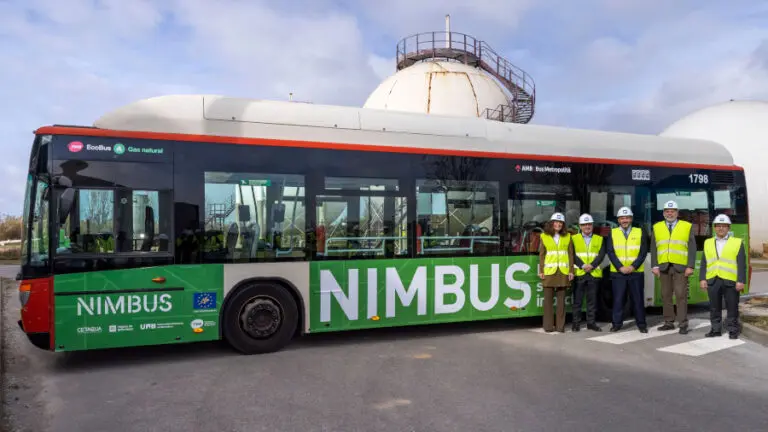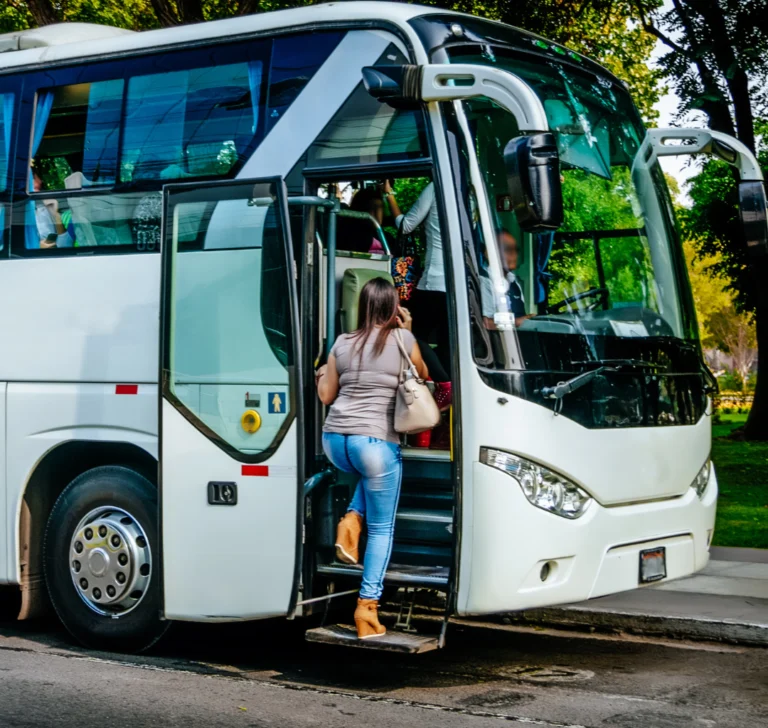The bus, known as Nimbus, travels without using a single drop of conventional fuel… but a lot of human waste.
Clean energy for transportation has become a popular topic in the industry in recent years. While most people are familiar with electric and hydrogen-powered vehicles, have you ever imagined a truck running on… human waste?
Well, in Barcelona, this is already a reality. The V3 urban bus line runs through the city powered by sludge from wastewater, which is transformed into biomethane, according to the digital outlet Ámbito. This renewable gas reduces carbon dioxide emissions by 80% compared to traditional natural gas, making it a much greener, and surprising alternative.

Nimbus project: how does it work?
The vehicle, known as Nimbus, travels an average of 14,000 kilometers per year without using a single drop of conventional fuel. Nimbus has been in operation for five years and is the result of a collaboration between Aigües de Barcelona, Transports Metropolitans de Barcelona (TMB), the Autonomous University of Barcelona (UAB), and the technology center Cetaqua.
Researchers from Veolo, in collaboration with TMB and the Autonomous University of Barcelona, developed the project using a large treatment plant capable of processing 400,000 m³ of wastewater daily. After five years of work, they succeeded in producing a biofuel that emits 80% less CO₂ than natural gas.
The process transforms sludge into biomethane, allowing the V3 bus line to travel up to 100 kilometers a day. The resulting biogas contains about 65% methane and 35% CO₂, which is then purified and enhanced by adding hydrogen from renewable sources, reaching a high methane concentration suitable for distribution networks or gas-powered vehicles. Additionally, the process produces no unpleasant odors and significantly reduces emissions.
As a result, the biomethane used in the V3 line complies with the Euro VI emissions standards set by the European Union. The Nimbus project, with a budget of over 11 million euros, aims to meet the transportation needs of Barcelona’s peripheral areas, where electric buses are still not effective due to their limited passenger capacity and range.

A breakthrough in public transport and emissions reduction
The project represents a major step forward for public transportation and emissions reduction, not just in Barcelona, but across Europe. According to Barcelona Secreta, transportation accounts for nearly 30% of energy consumption in the European Union, yet less than 10% of fuels used are renewable. Brussels aims to raise this figure above 30% by 2030, and Spain has already committed to quadrupling its national biogas production.
After five years of successful operation, the Nimbus experience aims to continue expanding and supporting new projects. The goal of pilot projects like Nimbus is to scale up into large-scale industrial initiatives for public transportation based on truly renewable energy sources.
In short, the Nimbus bus is not just a curiosity, it offers a glimpse into the future of urban mobility, where today’s waste becomes tomorrow’s clean energy.
Who would’ve thought the answer was right under our noses all along…

$170 billion at stake: 1,500 companies demand tariff refunds
Companies have challenged the global tariffs imposed by President Donald Trump, asking federal courts to reactivate proceedings to begin the refund process. The companies that

In brief: enforcement measures target speeding, CDL training gaps and more
Major enforcement actions across the U.S., including speeding, CDL fraud, and chain violations Colorado launches Speed Enforcement Program The Colorado Department of Transportation (CDOT) has

Chinese Vehicles Raise Espionage and Remote Sabotage Concerns
Investigations into Chinese technology in connected vehicles warn of espionage risks, massive data transmission, and potential remote access vulnerabilities that concern U.S. transportation and security

Between the Court and the Fed: the market redefines its roadmap for 2026
Trade policy in limbo as markets price in 2026 rate cuts and Supreme Court strikes down Trump tariff plan. In the latest episode of the

New 10% U.S. import tariff takes effect amid legal and market uncertainty
The implementation of these new tariffs has generated global uncertainty among exporters, increasing confusion around U.S. trade policy. The United States has implemented a new

Military Trucks That Moved a Base in Syria
Convoys of advanced HEMTT and PLS military trucks carried armored vehicles, prefabricated base structures, mobile workshops and heavy equipment during the U.S. withdrawal from northeastern
